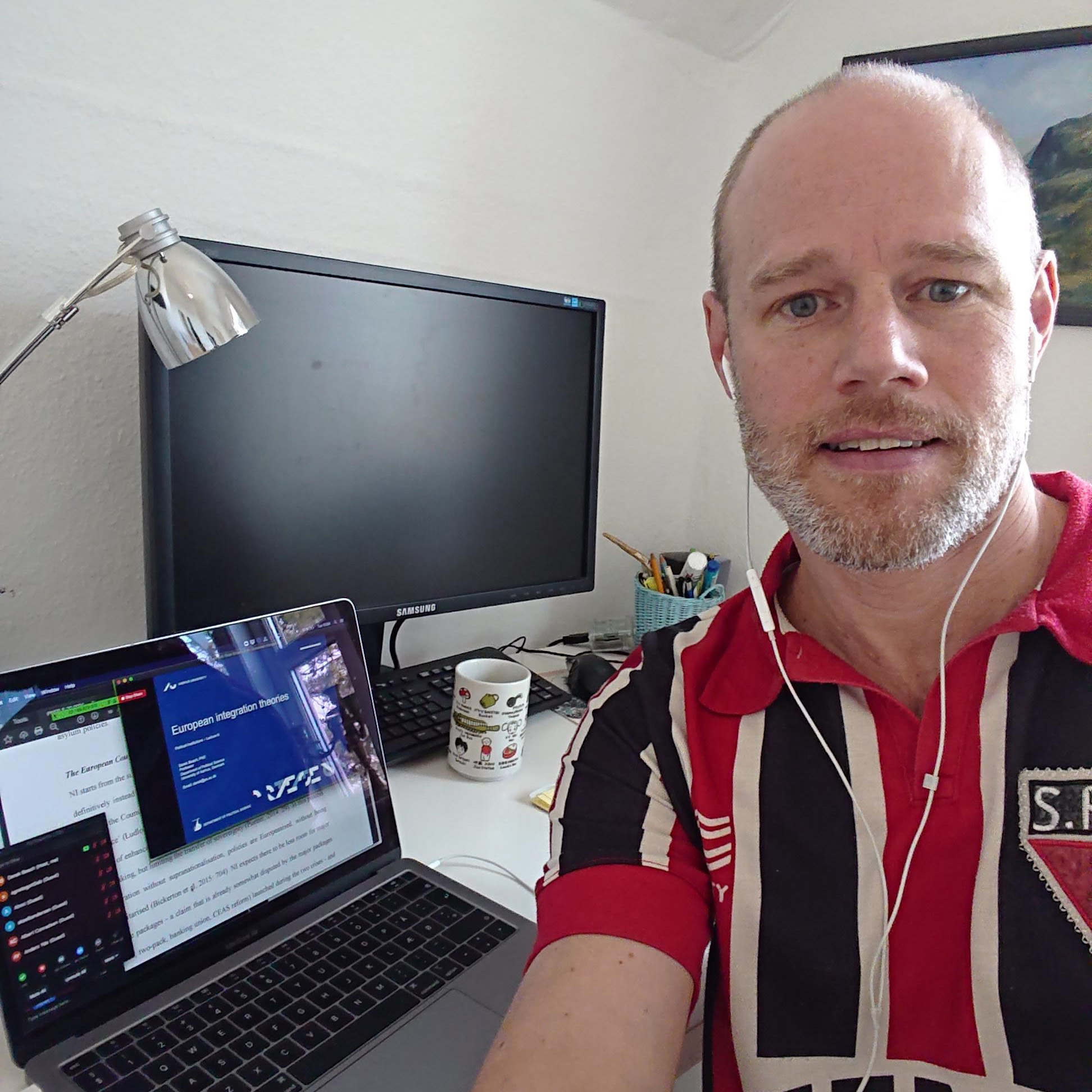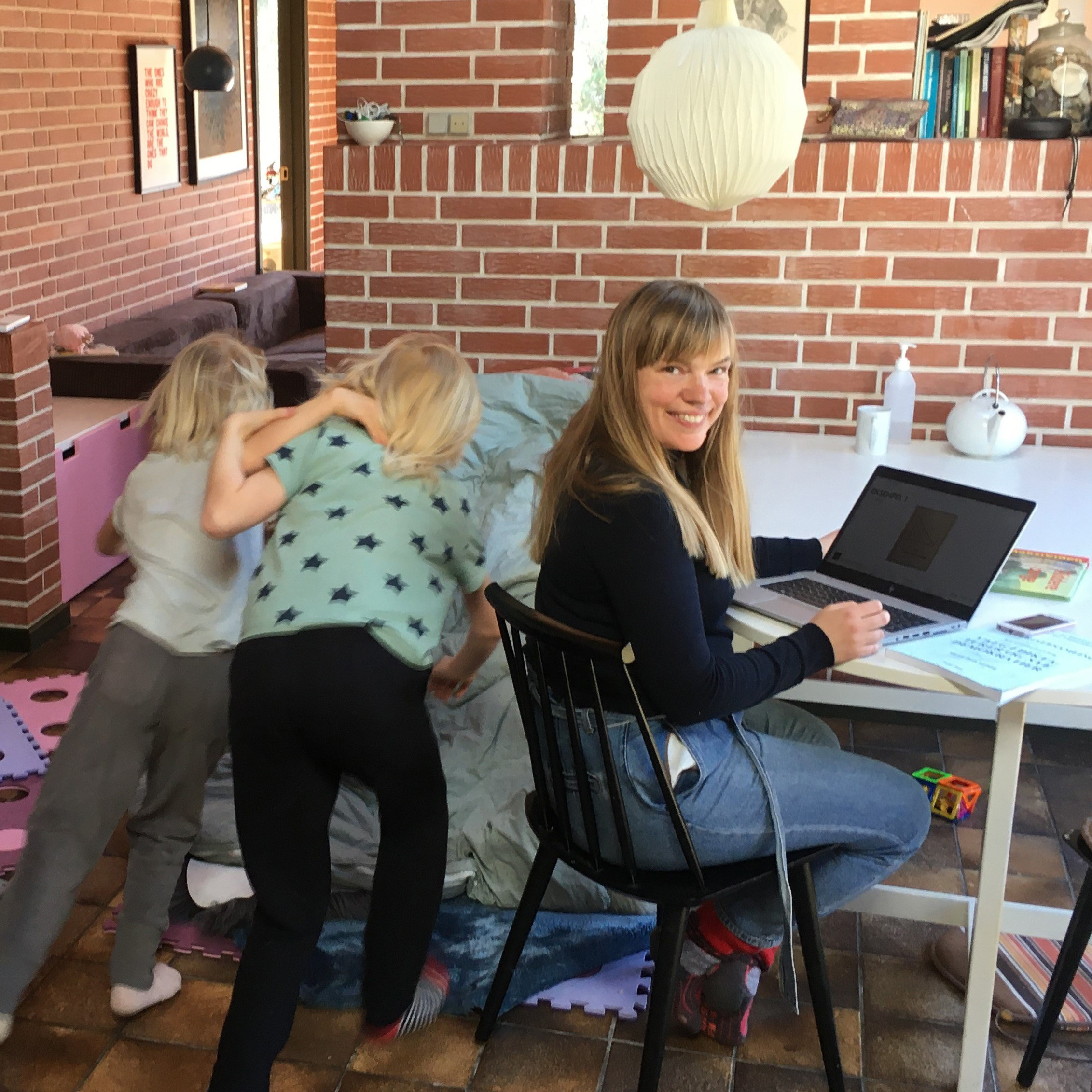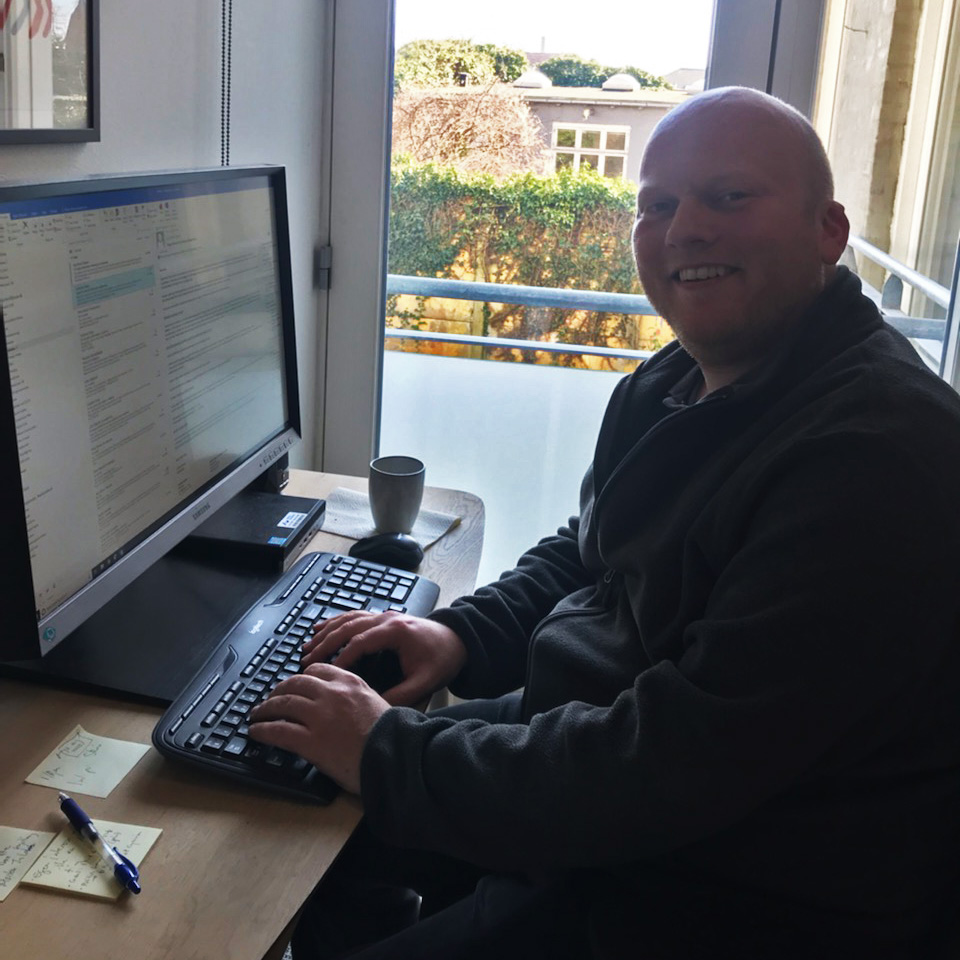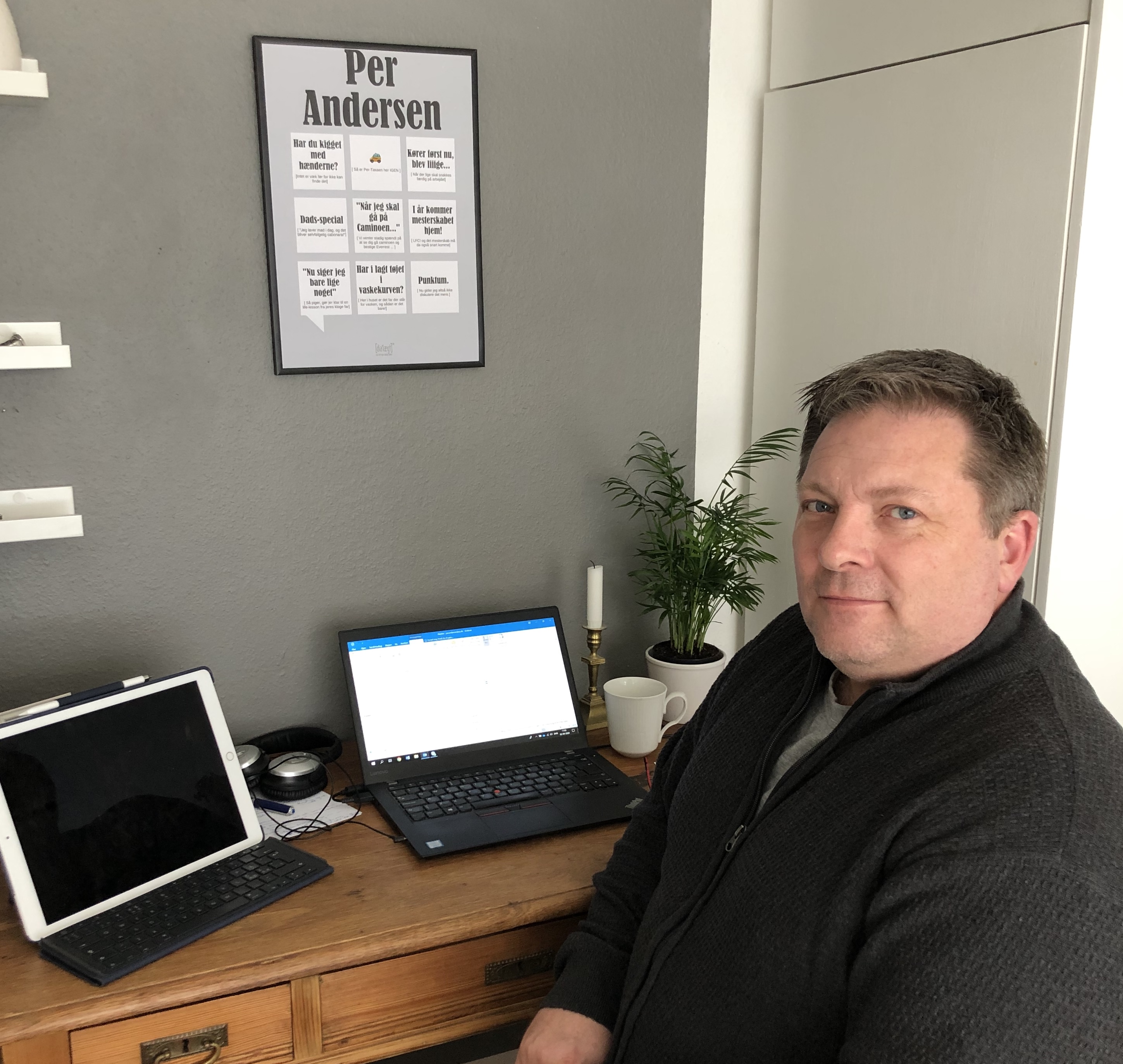A different form of teaching
How do you teach from home during the coronavirus crisis? We have spoken to two lecturers from the Department of Political Science, a director of studies and a vice-dean. In this article, they share their experiences. You have to be flexible and accept things as they are, they say.




For the past few weeks, Professor Derek Beach and Assistant Professor Merete Bech Seeberg have adapted their teaching to online platforms such as Adobe Connect and Zoom. Here they offer their view on the transition to the new forms of teaching.
“In this crisis situation, we all need to accept that we are not making the most of online teaching,” says Derek Beach. “This would require much more time and planning, but I have lots of other good ideas for how to use digital tools in the teaching. You could make short video lectures that provide comments on a text or short live lectures with quizzes or polls to provide a break from the one-way communication.”
For Merete Bech, being able to record her lectures and putting them on YouTube and Blackboard has enabled her to plan her daily life in the best way possible. She has also converted some of her lessons into 10-minute Skype conversations with the individual students.
“All things considered, the teaching is going surprisingly well,” she says. “Things are fine as long as the lecturer and the students accept things as they are and are creative and flexible. And to retain the students throughout this time, you need to spend time with them one-on-one.”
Director of Studies Carsten Jensen from the Department of Political Science applauds the lecturers and the students for the flexibility they are demonstrating during this difficult time:
“I’m very impressed by the flexibility and huge commitment shown by students as well as lecturers,” he says. “This is no doubt an extremely challenging situation for a lot of people - not least for those who have children, which is the case for many of our lecturers and students. It’s very impressive!”
Task force established
Carsten Jensen is part of the newly established Aarhus BSS task force on study-related matters. The other members are Vice-dean for Education Per Andersen, Director of Studies Lars Esbjerg, Head of Studies Administration Anni Langberg, Head of Communications Aase Bak, Administration Centre Manager Anne Bækby Johansen and Advisor Margrethe Vejs-Petersen.
In consultation with the faculty management team, the task force has the authority to make decisions about how to implement the decisions made by the senior management team, the faculty management team and the Committee on Education - and to communicate these decisions to the departments, the students and the administrative centre.
“The work we do in the task force is not that simple,” Per Andersen acknowledges. “Basically, all study administrative issues are in play at the same time. Every single person in the country is affected by the situation one way or another, so we focus on how the students and their study situations are affected by the fact that AU is physically closed.”
Huge effort from lecturers and students
Per Andersen believes that the work of the task force is made easier by the way that the lecturers and students have handled the transition of the teaching to the new formats:
“We are dealing with a very sudden change, but our lecturers and our students have been extremely understanding and resourceful and have taken on the task. When our usual means and tools no longer apply, and we suddenly have adapt these and our everyday life to a new reality, we have to develop a completely new way of working and studying. This has involved a huge effort from everyone, and that is extremely impressive.”
However, according to Per Andersen, there is a reason that it has been possible.
“That we have succeeded is, among other things, due to the fact that AU adopted a digitisation strategy a few years ago. One of the goals of the strategy is to include educational IT tools in the teaching and prepare our lecturers for doing so,” he says. ”If we hadn’t demonstrated due diligence, we wouldn’t have succeeded as well as we have. When we suddenly had to switch to remote teaching, our lecturers by and large knew what to do or where to get help. This means that our year-long efforts in this area are really paying off these days.”